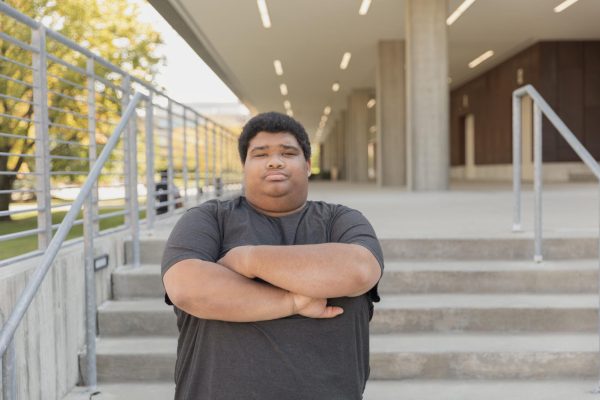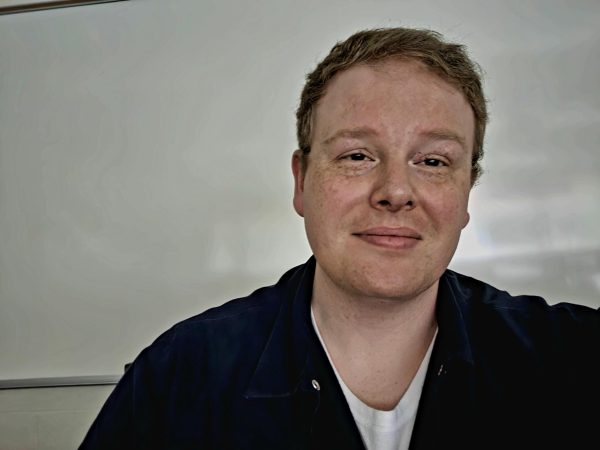Letter to the editor: OU sustainability, refusals and half measures
To the OU community,
October was declared to be Sustainability Month at Oakland University and was meant to represent a renewed commitment to creating a sustainable campus, but we are falling far short. Recently, more extensive details for the East Campus Development plan were made public and the plan features leasing campus land to private developers to construct luxury hotels, condos, and shopping centers. The goal of this plan is not to enhance campus life nor to create more spaces for students, but it is to attract businesses focused on the highest income consumers, functionally excluding the OU community from the East side of campus.
While this development plan runs in clear opposition to the university’s proclaimed sustainability goals (luxury and excess are, by definition, not sustainable), it also reveals the underlying philosophy guiding the actions of OU’s administration: profit above all else, even the student body.
The message from our administrators is clear: any commitment can take a backseat if it means enchanting profit margins. How can OU, on the one hand, pledge to be committed to sustainability while also leasing large swaths of campus land to the highest bidder for non-academic purposes? How can we continue to charge students astronomical prices for tuition and on-campus housing while pandering to the rich?
It appears that our administrators are more interested in becoming a landlord than building a strong institution for higher education.
This worldview extends to all aspects of OU: whether it be their treatment of workers, the elimination of university transportation systems, the closure of dining halls or their refusal to invest in cheap textbooks programs, OU is solely focused on profit with no regard for who or what is potentially harmed in that pursuit. The university’s treatment of sustainability is no different than their attitude towards students, faculty and staff, and while still wildly disappointing, it does not represent a deviation from business as usual.
Sustainability and the East Campus Development plan are currently in the spotlight, but OU’s general animosity toward the community and austerity towards campus services highlights how we, as students, faculty and staff, are nothing more than commodities to be bought and sold. They view us not as creative, intelligent and hardworking individuals; rather, we are a source of profit.
Instead of investing our tuition dollars and tax money into programs that benefit all of the OU community, they lease land to private developers because it has been determined to yield higher profits. Focusing on student programs and taking care of faculty would increase retention rates and subsequently annual profit, but this is a long-term project that does not commercialize our campus and therefore does not interest the Board of Trustees. The likelihood of this plan actually delivering revenue is irrelevant (because there’s no guarantee that this will pay off), all that matters is dollar signs.
Even if this plan does return profit to OU, there is no promise that we will see any of it, and given the previous behavior of our administrators, it’s unlikely it will ever be used for the direct benefit of students, faculty or staff. Despite what administrators claim about budget shortfalls, the university is still making plenty of money, but the revenue is unevenly distributed to the administrators at the top that profit the most.
At the kickoff of Sustainability Month, President Pescovitz was protested by students opposing the East Campus Development plan. Their signs featured slogans such as “Students Against East Development,” “Planet over profit” and “No hotels on my campus.”
Too often do we treat instances of student collective action as individual instances of anger rather than the culmination of months, or even years, of frustration and neglect. The profit-driven mindset of administrators has hurt many people at OU, and because the voices of students, faculty and staff are often completely ignored, protests happen, opposition groups form and conflict ensues.
By refusing to resolve the unequal distribution of power at OU, administrators functionally guarantee that activists will arrive in the wake of their unpopular unilateral decisions — East Campus Development is no exception. These activists are not aberrations, they are not exceptional, they are the product of a deeply unfair system created and maintained by our administrators. If we ever want the conflict to cease, students need to be prioritized, listened to and given true power over what happens on their campus.
Disagreement could happen more collaboratively if campus leaders were not constantly told no and given false promises of “open door” policies that never bear any fruit. Anytime we experience real, material problems at OU, our administration either refuses to solve the problem or employs half-measures thinly veiled as student centered projects while undermining those same projects behind the scenes. Sustainability is no different — something needs to change.
A university must be run for the benefit of the community as a whole, not for profit. The treatment of employees, student programs, sustainability, and all other issues must receive real attention, and the solutions must be endorsed by those that will be impacted. Our experience at Oakland University must not be viewed as important only insofar as revenue streams are secured.
The East Campus Development plan has no place at OU and our Board of Trustees must cancel this project. We need leaders that actually care about and listen to the people they claim to lead.
If you want to help cancel this project, sign the petition: https://www.change.org/OUSaveOurCampus
Signed,
Jeremy Johnson
Director of Executive Platform, Oakland University Student Congress











Unbelievable • Nov 6, 2022 at 2:54 PM
OU is such a mess right now it’s unbelievable that they think ECD is a good idea. Read the room… no one likes you or your ideas OU.. if I were you I’d keep ECD in the drafts.
Annette Gilson • Nov 6, 2022 at 1:00 PM
Jeremy Johnson, thank you so much! You are a great voice, and yes, as you say: “students need to be prioritized, listened to, and given true power over what happens on their campus.”
Angry Student • Nov 6, 2022 at 11:19 AM
The east campus plan is a disaster. No student wants it. Why cant we have admin pay attention to problems that actually MATTER like tuition prices or textbook cost?!?! This needs to be cancelled.
John Sanchez • Nov 5, 2022 at 4:20 PM
OU is continuing its “profits over people” mentality. After the large faculty exodus and drop in enrollment they have not realized a thing. They will not change. Vote with your tuition dollars – take them elsewhere.
Student • Nov 5, 2022 at 12:48 PM
So well said. Considering the participation in the petition, the protest mentioned here, and the amount of students giving their feedback through comments and letters like this there is just no way for admin to deny that this project is anti-student. Hopefully they take an honest look at everything we have to say and reconsider this project.